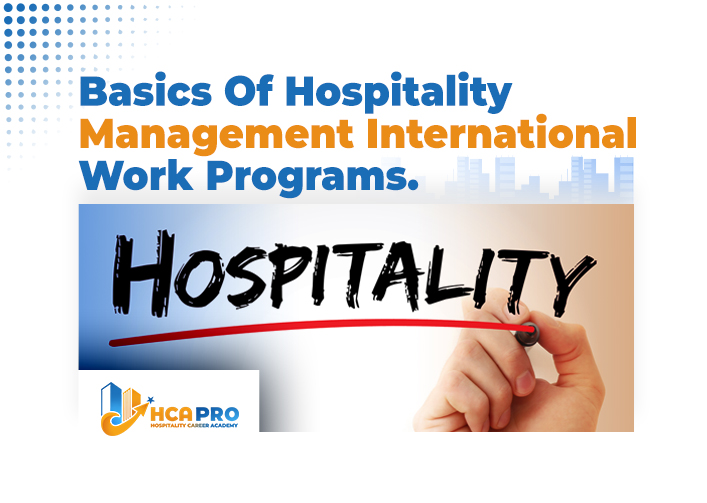
Hospitality Management Essential International Work Programs
One advantage of working in hospitality is that you will have easy access to the international spotlight. As long as there is a need for the job, you may be able to travel and work almost anywhere in the world. The many working programs available to you demonstrate the industry's support for globalization.
There is no barrier to enrolling in one of these programs if you are interested in working internationally. However, it would be best if you did not enroll in any program that you see advertised. Before you begin training, there are a few things you should think about.
What Is It That You Want?
First and foremost, you should be able to identify your career objectives or goals. You should be aware that there are numerous career paths available in this industry. That is why you must first determine whether the curriculum of the program you are considering is in line with what you want to do in the future.
If your personal goal is to supervise a large hotel or hold a senior management position in a well-known company, you should look for a program that offers a bachelor's degree, as this is required for the type of job you want.
What Happens After The Program?
Following that, you must consider the credibility of the institution you are considering. Is it in a tourist area, and does it have a strong representation from major hotels?
What resorts, hotels, and tourist attractions are included in your prospected program? Do the industry's top employers hire graduates from that institution? These kinds of things should be considered.
What Are Their Credentials?
It is also critical to understand the credentials of the faculty who will be training you in the program. You should also be aware of their industry experience so that you can be confident that what they are teaching you is not only by the book but also based on extensive experience in the field.
Faculty in this field are likely to have advanced degrees in education, business, or other disciplines other than hospitality and tourism. This is understandable given that not all faculties are sole graduates of the study. It is considered advantageous if the faculty has a combination of academic achievement and business management-level experience.
How About Accreditation?
You should also look into the accreditation of the program you are interested in. Is it regionally recognized? The term "regional accreditation" refers to acceptance by accrediting bodies that serve one of the six geographic regions of the United States. Each accrediting body is responsible for assisting most private and public higher education institutions in whatever area they are assigned to. This type of accreditation is essential if you intend to pursue a bachelor's degree or further your education.
However, other types of accreditation, such as professional accreditations, can be beneficial. Other institutions have this type of certification.
